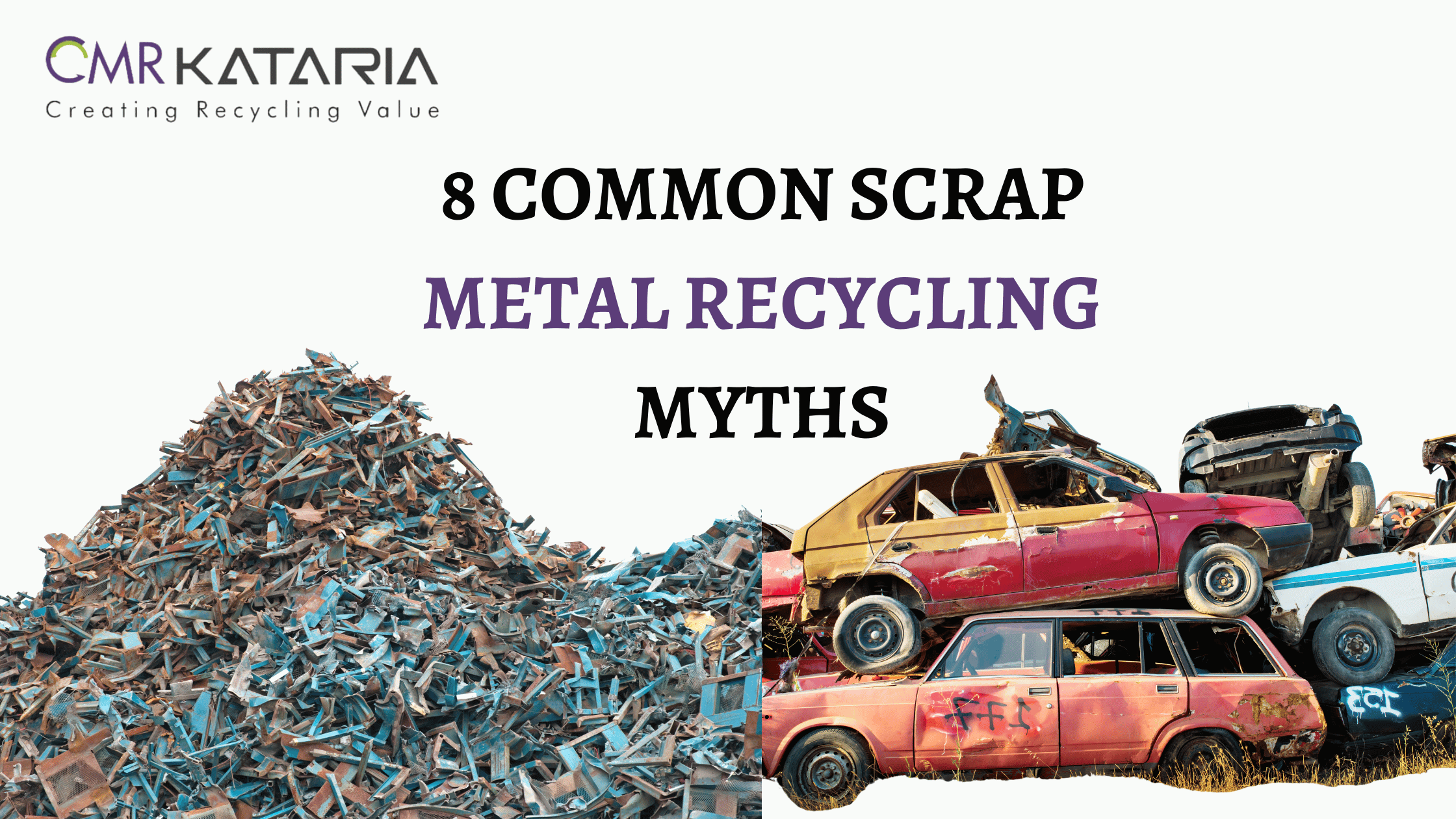All of us have been duped by a myth before. The majority of these misconceptions are harmless and amusing. But when falsehoods about crucial issues like recycling metal start to spread, we start to experience problems.
Similar such ideas exist when it comes to recycling metals. Although there is a rise in scrap vehicles for sale, there are a few recycling myths about scrap metal that we wanted to dispel. Let’s start!
It is not possible to recycle crumpled metals
Bringing crumpled metal to a recycling plant is the first recycling myth we wanted to dispel. Your neighbourhood recycling centre can accept crumpled cans, however some self-service recycling can machines are delicate and might not! Metals are really compressed as part of the recycling process. Metal is damaged during recycling by being chopped, heated, and other processes. As a result, if you work in demolition and have crumpled fragments that you assume are unnecessary, reconsider.
Separating metal from trash is not important
This is a highly possible thought. Simply throwing your crumbs in the garbage is simpler. However, what is thrown out ends up in landfills. Why does this matter?
Metals release metals and chemicals into our water and environment when they are allowed to slowly degrade in landfills. This finds its way into the seafood, produce, and water we consume. Additionally, you are requiring additional metal to be mined and taking up space in already overflowing landfills.
Recycling is not an economical process
Metal recycling is sometimes perceived as an expensive practise that only helps the environment. However, that is untrue!
Metal recycling is far more economical than mining and manufacturing new, virgin metals. Specially when you will see the car kabadi market in ahmedabad. Additionally, it enables you to prevent your scraps from ending up in landfills, which is equivalent to letting your money go to waste. By supporting and generating jobs in the recycling sector, recycling your waste metal also benefits the economy. Additionally, by recycling their waste metal, several firms have been able to save money and boost their profitability.
Bigger scrap pieces are better
There are numerous problems with this myth. First, people assume recycling plants only need large pieces and shouldn’t bring scraps. As a result, they simply discard metal that could have been repurposed. Another reason this is a problem is that some companies, while demolishing a structure, leave enormous pieces of metal behind instead of cutting it down with their instruments because they believe that’s what facilities want. When in fact shredding it requires more effort.
There’s more energy needed in recycling than creating new
Although it has been demonstrated that this myth is untrue, it has been around for a while. According to the Environmental Protection Agency, recycling aluminium cans results in a 95% energy savings over using raw materials. Energy savings from recycling steel and tin cans range from 60 to 74%.
Burn the copper wire to strip it
This is risky in addition to being wrong. This is due to the poisonous gases it emits, which can be extremely deadly to breathe in. Additionally, it may harm the copper, reducing its value. The insulation leaves a residue on the wiring due to the heat.
Recycling scrap metal is dangerous
A lot of people have never visited a recycling facility. They view it as hazardous and unwelcoming. However, metal recycling plants are extremely secure. They adhere to rules created to protect both customers and employees. Additionally, only trained specialists are allowed to operate the majority of those large machines. When you drop off your scraps, you will not be anywhere near the big gear.
There’s no demand for scrap metal
There is more urgency than ever on businesses to lower their carbon footprint as the general public becomes more aware of the effects that businesses have on the environment. As a result, a large number of companies across a wide range of industries have switched to producing their goods using recycled materials. They have started purchasing metal from recycling facilities since they are aware of the financial and economic benefits.







